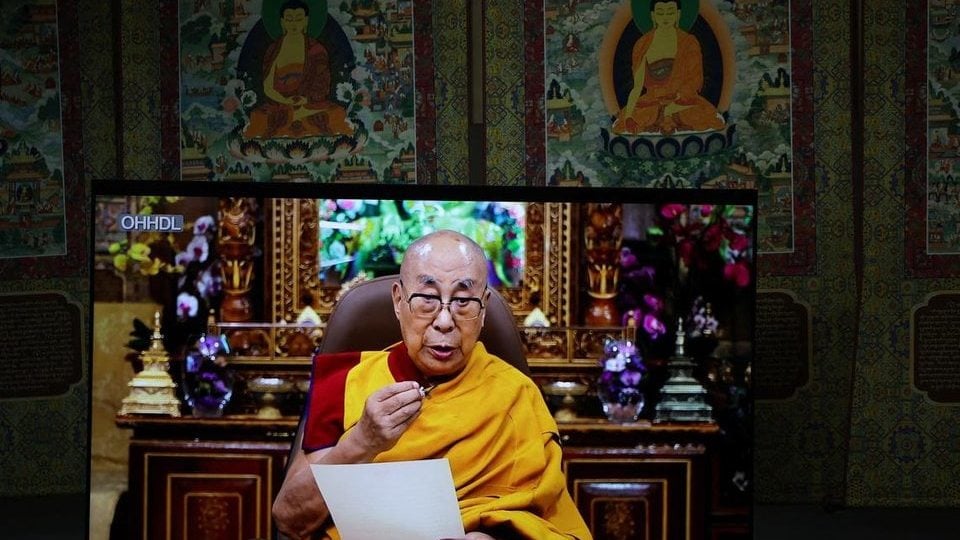
BEIJING – The Dalai Lama said only his organisation can recognise his reincarnation, a statement that Beijing has swiftly rejected amid a renewed tussle over who has the right to appoint the spiritual leader of Tibetan Buddhism, as it insists that any successor must be approved by the Chinese government. In a recorded video statement on July 2, the exiled Tibetan spiritual leader, whom Beijing regards as a separatist, reiterated that only the Gaden Phodrang Trust he founded “has the sole authority to recognise the future reincarnation”. “No one else has any such authority to interfere in this matter,” said the Dalai Lama, whose statement comes four days ahead of his 90th birthday on July 7, in a clear rebuke to China, which annexed Tibet in 1951. He also affirmed that he will have a successor upon his death, ending years of speculation that began when he previously indicated that he might be the last person to hold the role. Many observers widely expect China to name its rival successor to the Dalai Lama post, as a Beijing-backed leader would help legitimise its rule in Tibet, which has long resisted full assimilation into Chinese culture. At the regular media briefing on July 2, Chinese Foreign Ministry spokeswoman Mao Ning said the Dalai Lama’s succession must comply with religious rituals and historical conventions as well as Chinese laws and regulations. “The reincarnation of the Dalai Lama, the Panchen Lama and other grand living Buddhas must go through the golden urn lottery procedure and be subject to the approval of the central government,” she said. The lot-drawing system, where names are drawn from a golden urn, was introduced during the Qing Dynasty in 1793. The current 14th Dalai Lama was himself identified in “strict accordance with religious rituals and historical conventions” after the passing of the 13th Dalai Lama, and was informed after being granted exemption from the lottery by the then central government, said Ms Mao. Critics, however, say that the reincarnation process is guided by spiritual signs and not a state-administered lottery. Some argue that the lottery system is being wielded as a political tool to assert Beijing’s control over Tibetan Buddhism and is part of its broader Sinicisation campaign to assimilate all religions into Chinese culture. The present Panchen Lama – the second-highest-ranking leader in Tibetan Buddhism – was appointed by Beijing after the previous figure died in 1989. Earlier in June, he met Chinese President Xi Jinping, pledging support to the leadership of the Communist Party of China and saying he would work to align Tibetan Buddhism more closely with Chinese values. The Dalai Lama had identified a successor to the Panchen Lama post when the previous figure died, but the successor, a child, was allegedly taken away by the Chinese authorities. At the media briefing, Ms Mao said China’s policy of Sinicisation of religions is not to restrict religion from growing and prospering. “It has to adapt itself to the traditional and development stage of the country. Tibetan Buddhism was born in China and itself is an example of religion adapting to […]
5月前
更多The Straits Times